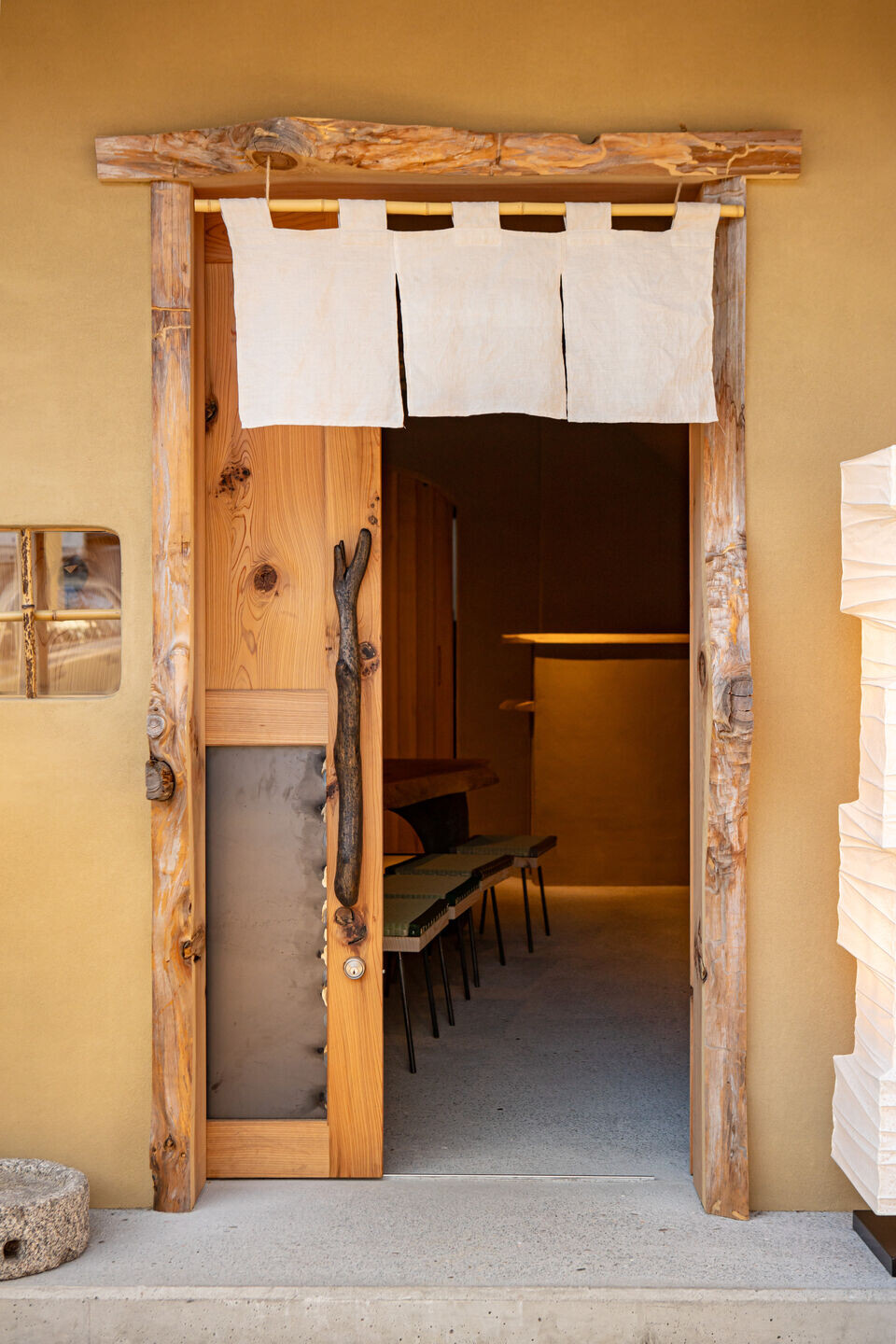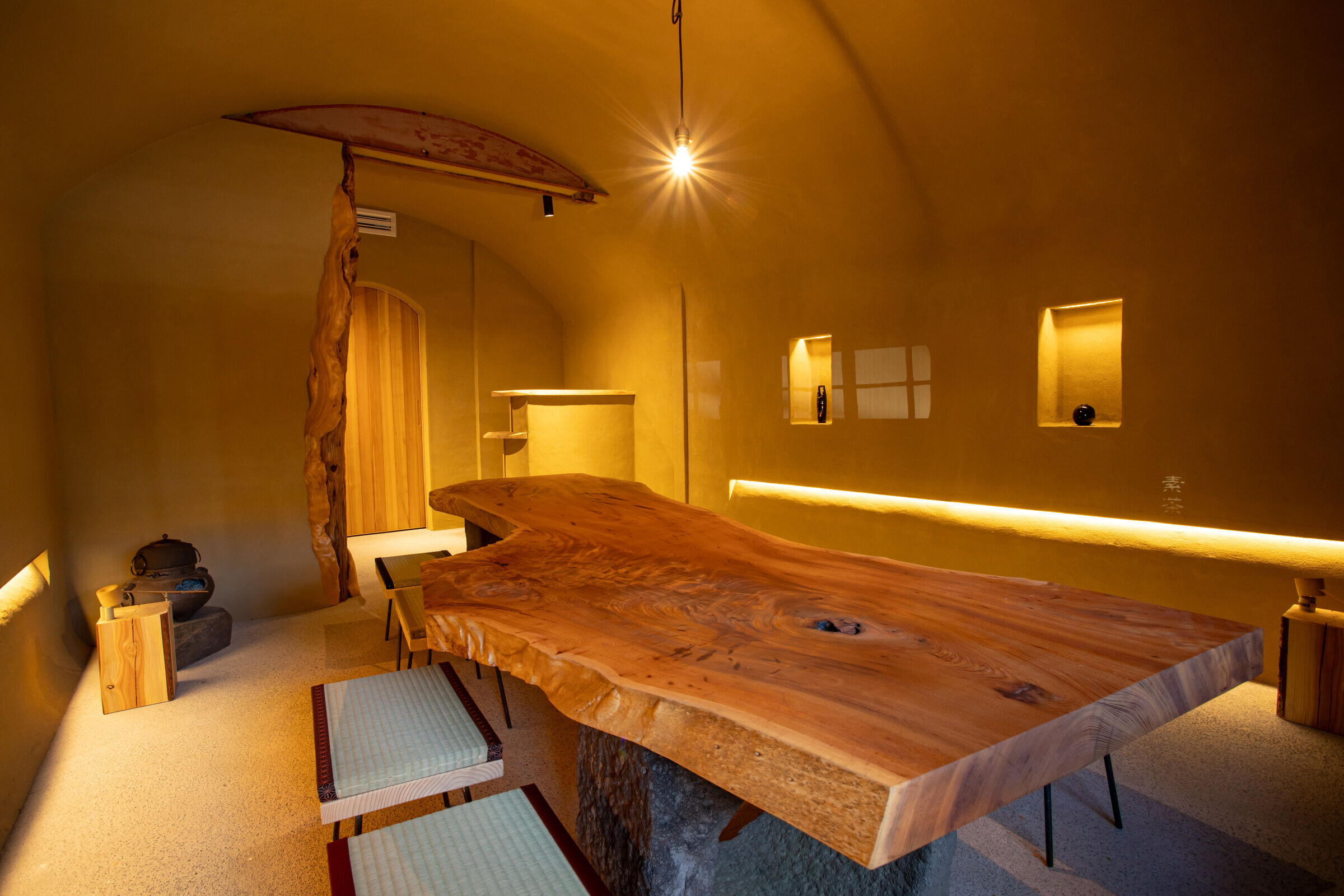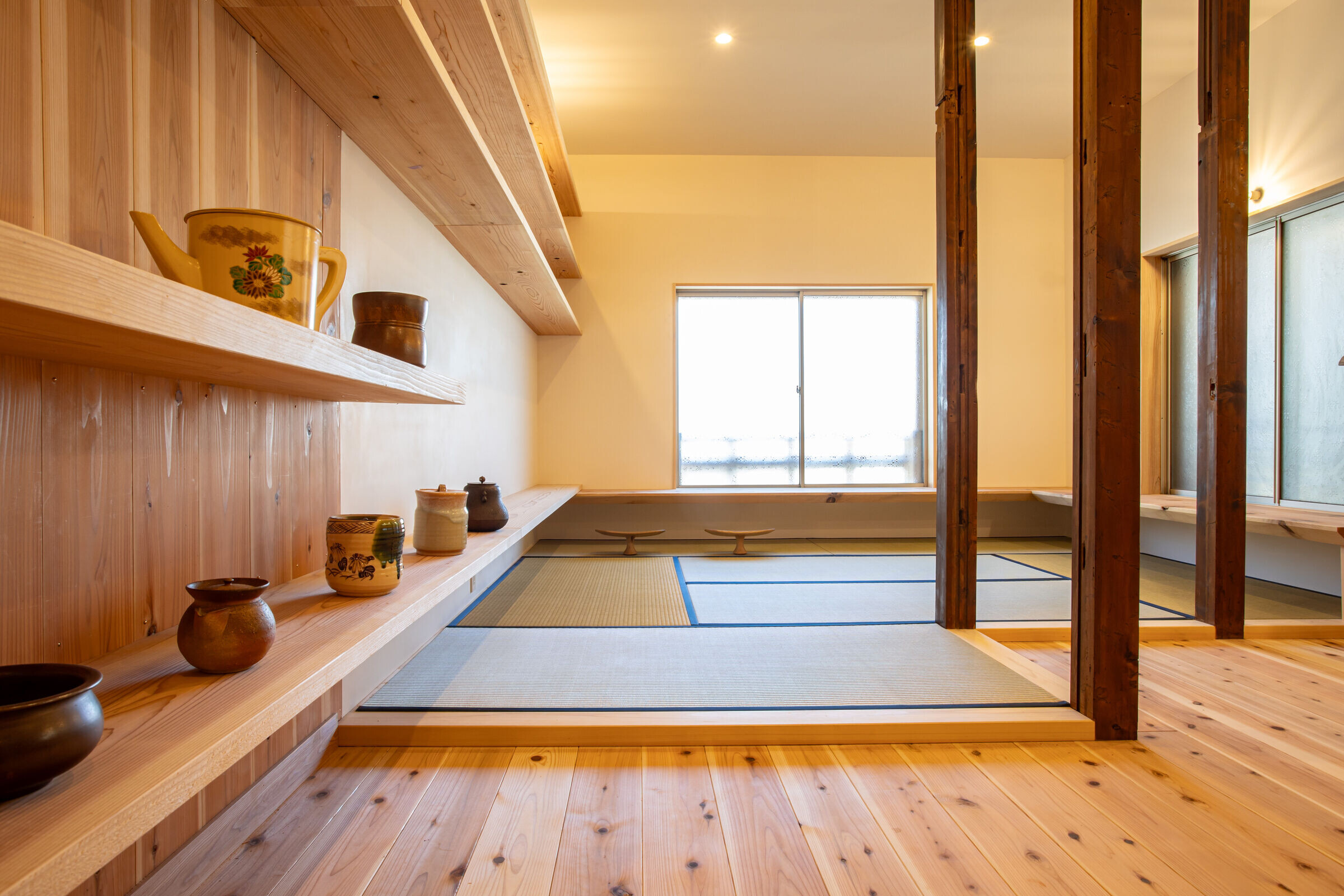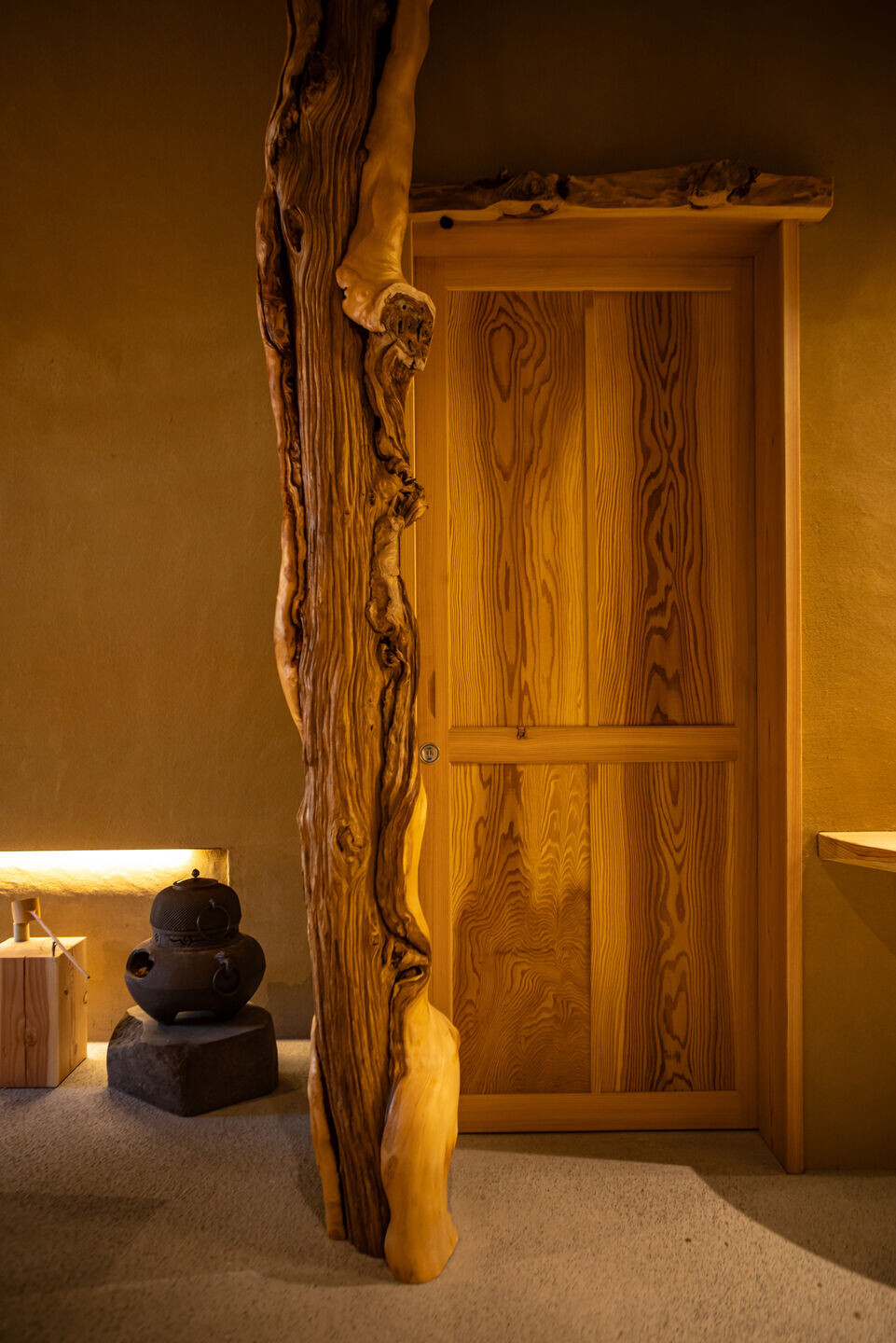SOCHA is a uniquely designed Japanese café themed around traditional Japanese tea and matcha. The concept phase began in 2022, solidified in 2023, and culminated with the café’s official opening in January 2024. The SOCHA project not only serves as a café but also as a showcase of Sobokuya’s design philosophy, offering an immersive experience in both culinary and architectural aspects of Japanese culture.

The building housing SOCHA is a renovation project, transforming a space that once served as a newspaper delivery office and a home into a vibrant café on the ground floor and Sobokuya’s Tokyo design office on the second floor. The renovation involved a complete overhaul of both the interiors and parts of the exteriors to craft a space that harmonizes traditional Japanese design with modern functionality.

The façade of SOCHA is striking, with the first floor featuring light, natural wood, and the second-floor showcasing “yakisugi,” or burned Japanese cedar boards. This contrast between the two floors creates a visual distinction that sets the building apart. The design intent carries through to the interiors, where the café’s low-lit, cosy ambience contrasts with the bright and refreshing atmosphere of the office upstairs.


Upon arriving at SOCHA, guests are greeted by a door handle made from driftwood, adorned with a metal plate featuring the SOCHA logo cut into it. The interiors are defined by earthen-coloured mud walls, a traditional element that provides coolness during the hot Japanese summer. A central feature of the café is an impressive wooden table made from a single piece of wood, surrounded by custom-built tatami-inspired stools. The space is lit by a single slit window, which not only ensures privacy but also allows sunlight to playfully enter the room.


The café’s design is rich in details that reflect Sobokuya’s commitment to preserving traditional materials and techniques. For example, a sickly tree, although not traditionally used in construction, was incorporated as a design piece pillar, preserving its natural charm. The registry counter features a custom-made wooden countertop, and a small, compact sink is fitted in the corner, blending functionality with aesthetic appeal. The tatami chairs, simple in design but surprisingly comfortable, further emphasize the traditional Japanese influence. The SOCHA logo cut out on the front door creates a beautiful reflection on the interior wall as sunlight hits the door, a design detail that is visible only during the early hours of the day.


Upstairs, the design office contrasts the café’s cosy vibe with a bright and energetic interior. The office is filled with the scent of fresh wood, with natural wood and white walls creating a clean, open atmosphere. A wooden bar counter replaced an old kitchen, serving as a workspace where work can be done standing or seated on high chairs. The original wood pillars were preserved, a nod to the building’s history and a common practice in the restoration of traditional Japanese homes where old pillars are generally restored and repaired rather than simply replaced.

The office also features ample shelving for design books and tea utensils, the latter doubling as decorations when not in use. A tatami section is incorporated for client meetings, inspired by Sobokuya’s head office in Yamanashi. The restroom door, like the café’s front door, is made from a naturally shaped piece of wood, seamlessly blending with the office’s overall design.

SOCHA and the Sobokuya Tokyo Design Office are not just a café and design office, but a living showcase of Sobokuya’s dedication to traditional Japanese methods combined with modern design, blending old and new to create a space that is both functional and aesthetically pleasing.















































